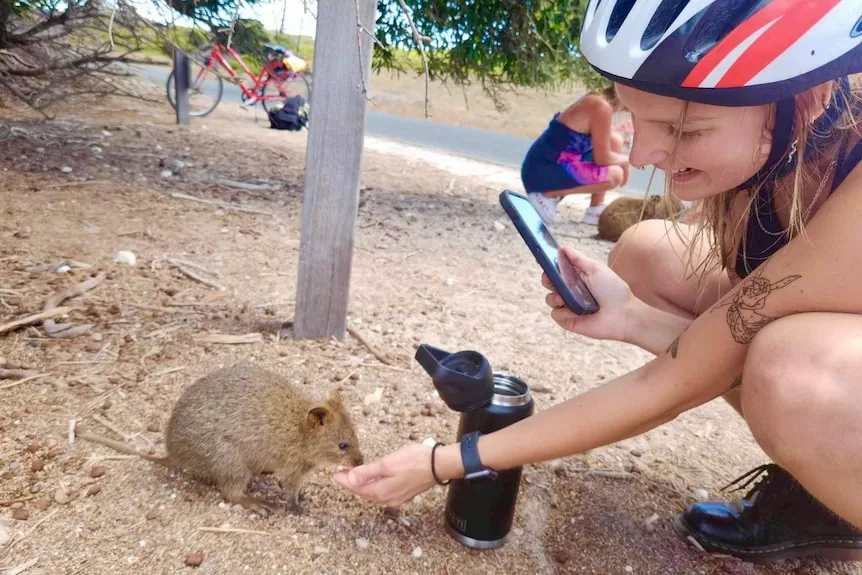- In short: People in regional areas are less than half as likely to gain a bachelors degree as people in metro areas.
- There are six local foundations in SA.
- What’s next? An Inaugural Boot Bash to raise money for regional students will be held on March 15.
A plunge into a new life away from home has started for regional South Australian students beginning their university studies in Adelaide.
In addition to juggling study and unpaid placements, they have to find a place to live in a city with a median weekly rent of $565 and vacancy rate of 0.3 per cent.
A 2022 report instigated by the National Centre for Student Equity in Higher Education found that people living in regional areas across the country were far less likely to gain a bachelor’s degree by the time they were 35 when compared with their city counterparts.
It found the cost of relocating and living away from home were significant barriers.
Quianna Garland from Hindmarsh Island, about 80 kilometres south east of Adelaide, said she was couch surfing at the start of the new academic year.
She said she hoped her application for a sub-let room in a shared student house would be accepted as she entered her second semester of a Bachelor of Animal Behaviour degree at Flinders University.
If successful, she said she would get an individual room lease in a five-bedroom house, paying $190 a week plus a share of the power bills.
“Hopefully this comes through for me,” she said.
She said she wasn’t daunted by the prospect of moving in with people she didn’t know and hoped a separate room lease would provide stability after her previous share house arrangement broke down.
A lot of driving
Fellow Flinders student Sophie Nottage decided to rent a townhouse with two friends.
However, after several months of juggling study and working to cover her share of the $650 weekly rent and living costs, she decided to return home to Middleton last year.
Ms Nottage, who is studying to become a teacher, said she drove a 160km round trip up to three times a week to attend university.
She said she was grateful to have a flexible employer.
“You have to find someone who can change with your changing uni roster,” she said.
More help for regional students
Country Education Foundation chief executive Wendy Mason said her organisation’s six locations in South Australia helped 53 students last year with a combined financial contribution of about $200,000.
Ms Mason said 33 of those were studying in health-related fields which included practical components and where studying remotely was not an option.
She said many of the students the foundation assisted could not have afforded to move or live in the city without help.
“They’ve got emotional support but the ability to lean on mum and dad or family for financial support is the point,” she said.
“They need to leave their home community and they need to be able to find the money to live in a capital city.
“The playing field … for the regional, rural and remote students compared to their peers in metropolitan areas is often really very disparate and inequitable.”
Step by step
University of Adelaide law student Ethan Shee, who spent his school years in Townsville, Port Augusta and Alice Springs, said he wanted to return to the Northern Territory to work after graduating.
“Adelaide feels a lot more relaxed than other cities but I still do prefer that smaller atmosphere,” he said.
He said he paid $500 a week for his room, expenses and meals at Lincoln College, a not-for-profit university student facility in North Adelaide, during his first two years of study.
He has since moved to Unilodge accommodation, a private provider of student accommodation that manages more than 38,000 beds across Australia and New Zealand.
The cost of one of their studio apartments in Adelaide’s CBD is $449 per week, which includes bills — but not food — and a shared a bathroom.
Supportive experience
Charlize Flett from Renmark in South Australia’s Riverland had her first taste of university life in O week and also moved into Flinders University’s on-campus accommodation.
She said she was impressed with social events organised by the university to bring regional students together in their first few weeks.
She said her room cost about $400 per week and included all food, bills, laundry and gym membership.
“I think that’s pretty good compared to some other places I looked at,” she said.
“I thought I would miss my mum’s cooking but the food is actually very good.”
She said she wanted a career in diplomacy after she graduated from her double degree in arts and law..
“This is a very different step from the Riverland but for me to do what I want to do, I have to be willing to move and to experience uni life,” she said.
Get our local newsletter, delivered free each Friday
